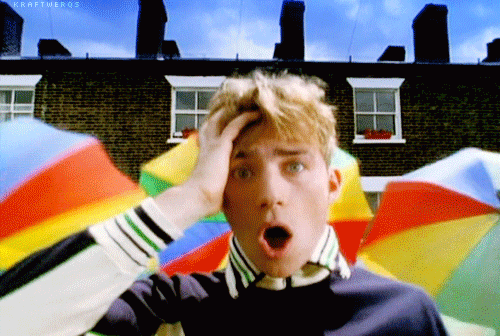
SINO:
With hindsight, and given what we know about the Blair government now and their new labour consensus neo-liberal politics in Britain and from the Adam Curtis take on that era, how do we critically evaluate the YBA's as anything other than instruments of that regime? Why is no one gunning for these guys, they certainly deserve it.
I was just thinking that the arguments of occupy could be applied to the art world, ie. why do the 1% of artists control 99% of its wealth, why is there little future for more highly qualified young artists that their predecessors etc.
JUDAICA:
art world is a bit different to occupy in some respects. at least as far as selling works is concerned. the system of sales is just a system by which things can be marketed to ultrra rich people and so you obvioulsy only get a few things commanding all the money. they are objects with only sign value (intersubjective) and no use value as far as themarket can see. so theres no reason for people to spread their interests broadly.
but if you mean it more institutionally that might be a bit more weighty. like the institutions are pretty self serving in who and how they support artists. and people have to know how to jump the right hoops. (which is probs true of everything thouhg)
having said that i agree the ybas success is absolutely unimaginable without the blairism that underpinned the art institutions of that day. its not that theyre work is good or bad and should be gunned for, its more that it is majoritarian and fulfilled within the regime. so doesnt this just leave other forgotten works of the 90s to be rediscovered and rekindled in the future.?
SINO:
Well, culturally its an analog of Britpop so Damien Hirst is kind of like a Oasis or Blur or something. And all those bands, a much as I liked some of them, were weird union jack waving retrograde perpetuations of an outdated and, at that time and place, perhaps dangerous form of British nostalgia and nationalism. I saw this video with Eschun talking about the nineties, where there is stuff like acid and jungle and rave culture going on underground while the official narrative is these flag waving beatles impersonators which was really disjunctive. I think Tracey Emin and Sarah Lucus and Hirst and a few others fit into that, being really sex, drugs and rock and roll and really turned inwards towards neuroses which perhaps corresponds with the market individualism of the era. I remember Charles Saatchi even tried to spearhead a failed art movement of painters in Britain called something like the new neurotic realists.
JUDAICA:
Doesn't reading that time as being purely a moment of failed-blairism-to-come, not acknowledge what the culture was for itself?
Perhaps you could say the cockney nostalgia and country house nationalism was actually what was least retrogressive about the moment in the sense that at that moment england was re-examining itself and reconfiguring its history towards something new. even if it was a failure it was a very interesting time in which the culture was in a time of active renewal and was spring cleaning its old baggage.
you cant really overlook what a big thing it was for britain to move from thatcherism (although i know this is a few years later on). i think people still really saw it as a democratic moment where all classes of britain could reclaim its cultural heritage as moving on from ossified class elitism. But i guess you are saying this was merely a spectacle?
I am not so familiar with Adam Curtis' take on the era, but does it totally disqualify the idea that at the moment new labour came into power england was involved in a genuine attempt to partake in a political moment? its a bit hard to say that these artists were card carrying neo-libs when at the time some of their directions appeared to be fertile ground. In some ways it was probably a moment like australia post-howard, where nobody could know that rudd was going to be a psychopath, yet that was sort of beside the point, because a large part of australia just wanted to revise the cultural baggage of the previous years.
Further, are you also saying that the YBA s effectively offer nothing that goes beyond their cultural context?
Further, are you also saying that the YBA s effectively offer nothing that goes beyond their cultural context?





I think the tile of the song and the doco 'Live Forever' sums it up. It suggests a kind of eternal, end of history, non-time where everyone could live out their fantasies of nostalgia for Britain, nationalism, village green, cockney kitchen sink aesthetics whatever, because it was all supposedly hollowed out by post-modernism and the ahistorical moment. But Imagine them doing the same thing today, against a backdrop of race riots, chavs, a conservative government and austerity. I think it'd look a lot worse though you could probably say that of anything of its time.
ReplyDeleteSure, but imagine how problematic all this "global - tech" type of music will look once the internet dreams have well and truly been worn through.
DeleteDoesn't it overlook the fact that from this position now, it still sounds new and authentic and exciting and opening possibilities?